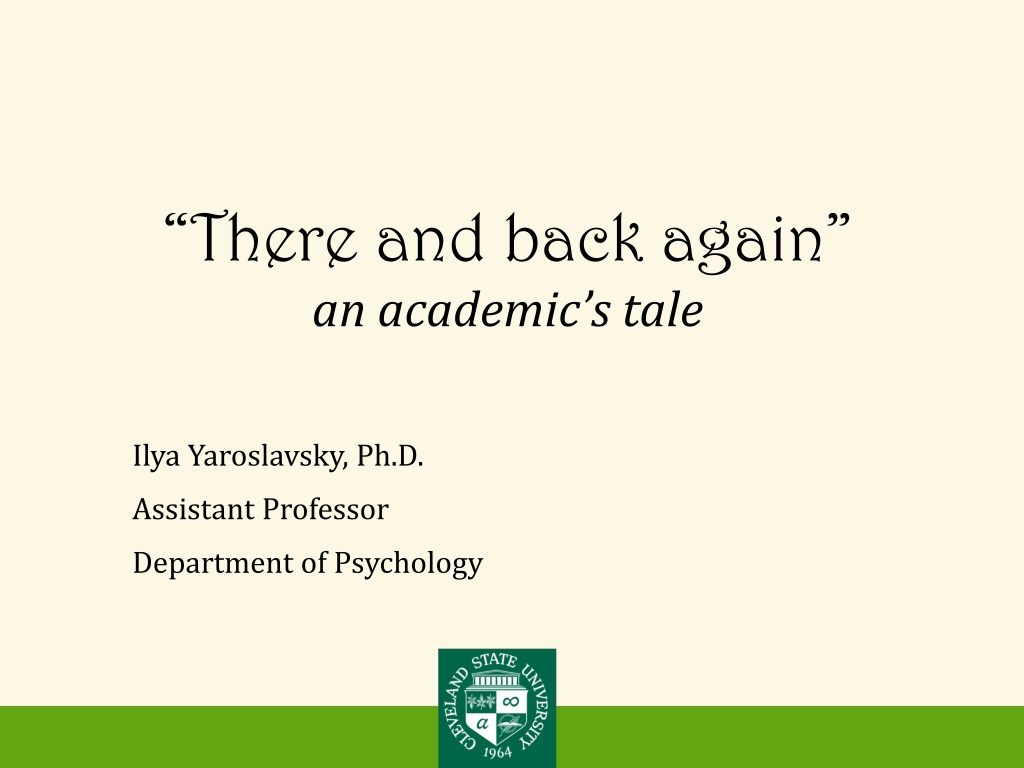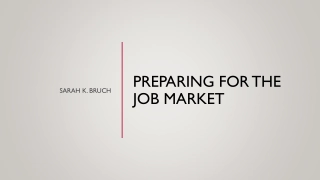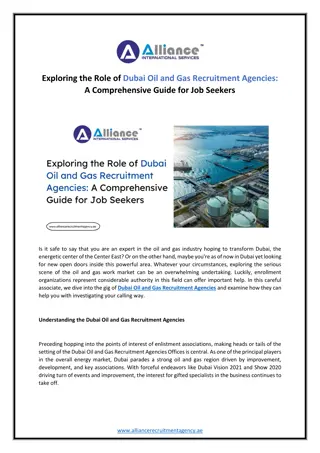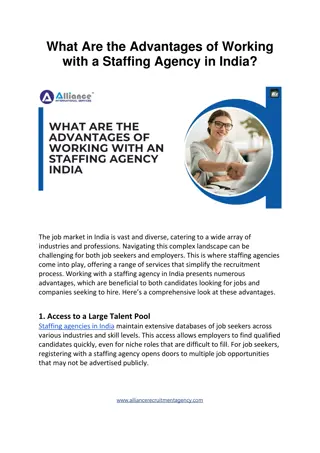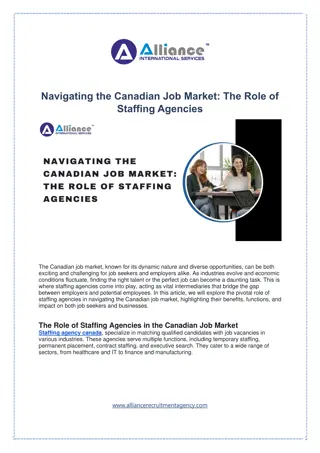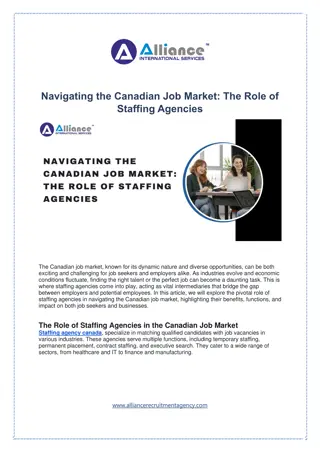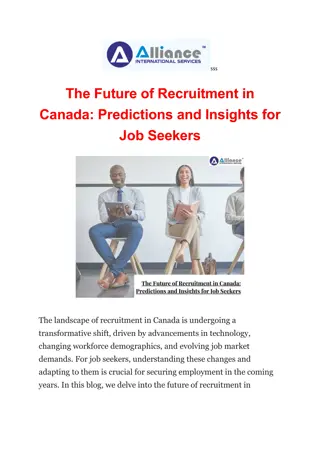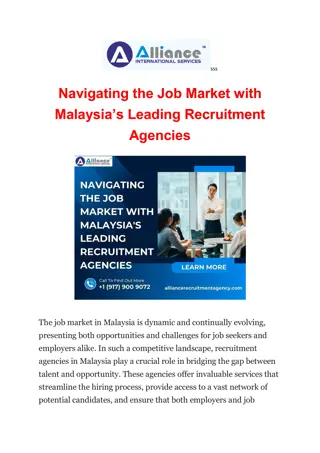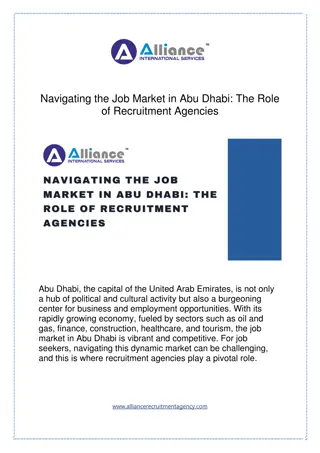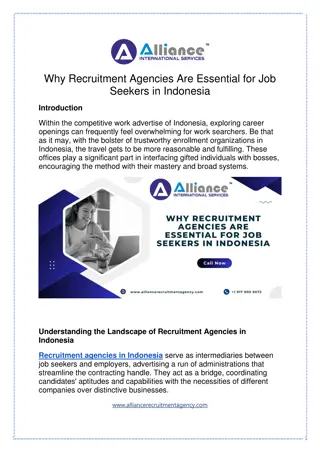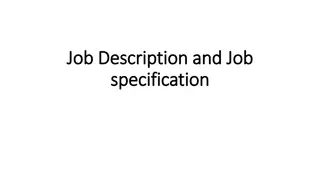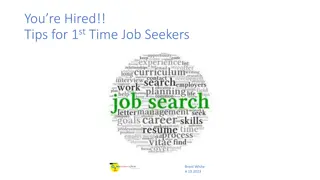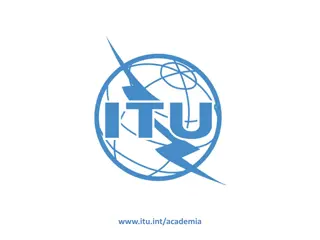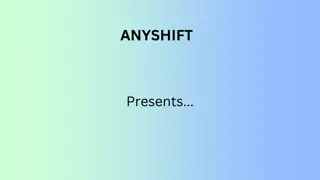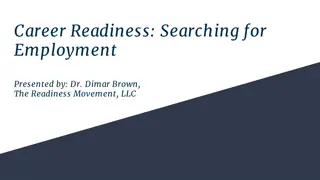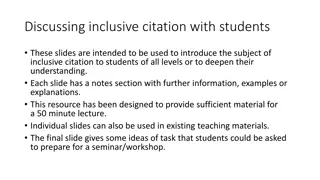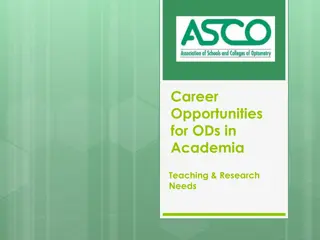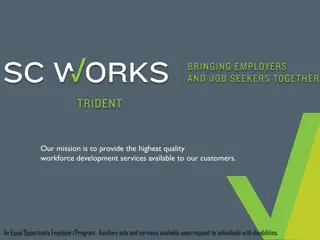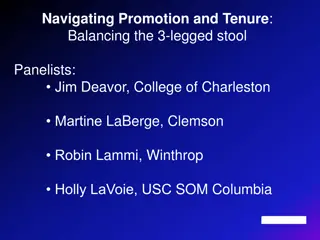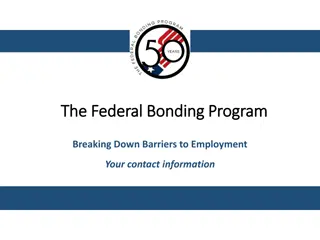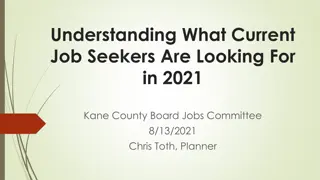Navigating Academia: A Comprehensive Guide for Job Seekers
Delve into the world of academia with insights on self-reflection, audience targeting, storytelling techniques, and crafting compelling application materials like cover letters. Learn about academic job selection and how to present your best self to prospective employers in the academic realm.
Download Presentation

Please find below an Image/Link to download the presentation.
The content on the website is provided AS IS for your information and personal use only. It may not be sold, licensed, or shared on other websites without obtaining consent from the author. Download presentation by click this link. If you encounter any issues during the download, it is possible that the publisher has removed the file from their server.
E N D
Presentation Transcript
There and back again an academic s tale Ilya Yaroslavsky, Ph.D. Assistant Professor Department of Psychology
Things to think about Yourself Interests, Values, Strengths & Weaknesses Your audience Academic Job Selection Your story Crafting a compelling Cover Letter Teaching Statement Research Statement Curriculum Vitae The story there-after
Things to think aboutyourself Basic questions you should consider: Why do you want to pursue a job in academia? Where do you fall along the teaching research continuum? What are your personal values? What are you professional strengths and weaknesses? Answers to these questions will guide your audience, selection and your remaining time in grad. school.
Things to think aboutyour audience There are three basic types of academic institutions Academic Medical Centers Research Focused Institutions Teaching Focused Institutions Where to find information on positions? Professional periodicals & websites (Chronicle of Higher Education, HigherEdJob, APA, APS) Professional Listservs & Wiki pages (psychjobs wiki; academicjobs wiki) (Wells, Schofielfd, Clerkin, & Sheets, 2013)
Things to think aboutyour story Regardless of the type of institution that is of interest to you, your mantra should be get more publications, independent teaching & mentoring experience This mantra will help you tell a coherent story about: your budding research program & research potential your passion for teaching & mentorship why your letter writers should write glowing letters of recommendation (Wells, Schofielfd, Clerkin, & Sheets, 2013)
Things to think aboutyour story in a Cover Letter Synthesize your background, research, teaching, & mentoring experience in 1-2 pages. Main goals: 1. Promote yourself 2. Promote your fit with the job This is the book cover of your story, and your chance to make a first impression. (Wells, Schofielfd, Clerkin, & Sheets, 2013)
Things to think aboutyour story in a Teaching Statement Synthesize your teaching philosophy & teaching experience into a coherent 1-2 page document. Main goals: 1. Provide evidence of teaching experience 2. Provide evidence of pedagogical competence 3. Provide evidence of cultural competence This is the most important chapter of your story for Teaching Focused Institutions. (Wells, Schofielfd, Clerkin, & Sheets, 2013)
Things to think aboutyour story in a Research Statement Synthesize your research experience & products into a coherent, programmatic body of work in 2-3 pages. Main goals: 1. Provide evidence of research potential 2. Provide feasibility & future direction of your program 3. Provide a plan to integrate student training* This is the most important chapter of your story for Academic Medical Centers & Research Focused Institutions. (Wells, Schofielfd, Clerkin, & Sheets, 2013)
Things to think aboutyour story in a Curriculum Vitae Present your teaching, research, and perhaps service experience in a clear, organized, and professional manner. Main goals: 1. Provide easy means for search committee to find information 2. Taylor organization of information to fit with institution type 3. Do not pad your CV with manuscripts in preparation, etc. Well organized CVs may leave the committee with a favorable impression. (Wells, Schofielfd, Clerkin, & Sheets, 2013)
Things to think aboutthe story there-after Successful reviews of your applications mean: Telephone interviews On-campus interviews - Job talks that include Teaching & Research presentations Job offers mean: Negotiations Tough choices (Wells, Schofielfd, Clerkin, & Sheets, 2013)
OK, I am now really freaked out It s OK take slow deep diaphragmatic breaths consider buttressing the weaknesses in your application during a post-doctoral fellowship.
